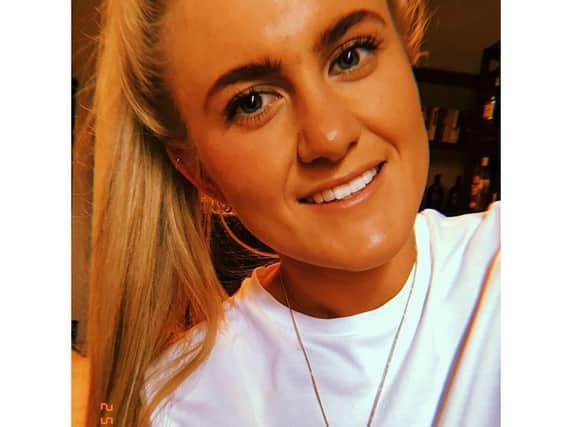Fleetwood woman, 25, who died of rare infection 'should have been treated sooner'


Coral O’Donnell, 25, suffered for 18 months from abscesses and skin infections caused by Panton Valentine Leukocidin before being rushed to Blackpool Victoria Hospital with serious breathing problems on January 10, 2019.
She was placed on a ventilator in the ICU, though it was not until January 22 that doctors began to suspect PVL and started treating her for the toxin. She was diagnosed the following month.
Advertisement
Hide AdAdvertisement
Hide AdShe was transferred to Wythenshawe Hospital in Manchester in March, where she remained for two months before dying of necrotising pneumonia, caused by the infection, on May 19.
At her inquest at Blackpool town hall yesterday, Blackpool Vic microbiologist Dr Ruth Palmer said Miss O’Donnell should have begun antibiotic treatment for PVL the day she went into hospital.
She said: “With hindsight, I think we should have suspected PVL on January 10 from the severe illness and very low white blood cell count, which was an indicator at that stage.”
Even a suspected case of PVL is enough to warrant treatment, according to NHS guidelines.
Advertisement
Hide AdAdvertisement
Hide AdThe court heard that notes about Miss O’Donnell’s history of skin infections - a symptom of PVL - were passed around in the hospital, but were not communicated verbally.
Dr Palmer said: “The communication is a sign of how many microbiologists there are. When we have a full staff, the ICU has a daily, ward-wide review. At the time of Coral’s process at the hospital we were significantly down, some days to one microbiologist.
“It’s a fact that Blackpool Victoria Hospital does not enjoy the biologist numbers the Royal College of Biologists recommends.”
She added that the hospital still does not employ an adequate number of microbiologists, currently having just four people, when a minimum of six were required.
Advertisement
Hide AdAdvertisement
Hide AdIndependent expert Dr James Gray said that Miss O’Donnell’s condition had progressed so severely that she had a less than 50 per cent chance of survival from when she first appeared at A&E.
He said: “The bacteria started in the upper airway, the nose and throat, and as a consequence of influenza it has spread to the lower area and lungs, and that means there will be a period of very intense bacteria multiplication in the lungs.
“In Coral’s case the infection has even progressed beyond that stage, in that bacteria had spread from her lungs into her bloodstream.”
The court heard previously that Coral, of Mount View, Fleetwood had attended her local GP surgery, walk-in centre, and Blackpool Victoria Hospital several times with skin problems caused by the PVL toxin, which Dr Gray said she probably picked up in late 2017.
The hearing continues.